What are the symptoms of Parkinson's?
The symptoms of Parkinson's can be divided into motor and non-motor symptoms:
Motor symptoms involve movement, such as tremor, freezing and rigidity
Non-motor symptoms are not related to movement, and can include fatigue, depression and pain
Some early symptoms include:
- cramped handwriting or other writing changes
- tremor, especially in a finger, hand or foot
- uncontrollable movements during sleep
- limb stiffness or slow movement (bradykinesia)
- voice changes
- rigid facial expression or ‘masking’
- stooped posture
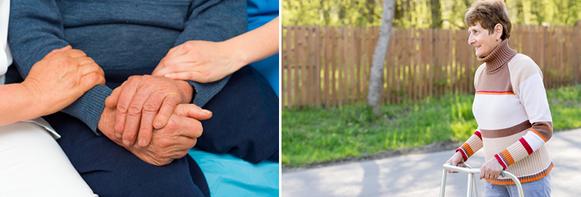

Parkinson’s is a very individual condition, with symptoms varying a great deal from person to person. A very wide range of symptoms is associated with Parkinson’s, and not everyone will experience every symptom.
What are the motor symptoms of Parkinson's?
The four primary motor symptoms of Parkinson's Disease are:
Slowness of movement (bradykinesia) and immobility (akinesia)
Slowed down movement is a gradual process that can affect various parts of your body, such as the face, arms or hands, as well as your gait and posture. Some movements, such as getting up, walking and turning around can be slowed down so much that they become increasingly difficult to perform. Bradykinesia also makes it difficult to perform everyday tasks such as fastening a shirt, cutting food with a knife or brushing your teeth.
Trembling (tremor)
Tremor is an involuntary, fairly regular, rhythmic movement of body parts. As the disease progresses, almost all patients will have a visible tremor, but it varies from patient to patient. Like other symptoms, tremor usually begins on one side of the body, often in the hands, and may later affect the feet, head and chin. In most patients, the tremor occurs in completely relaxed muscles (resting tremor) and disappears in targeted movements, so that everyday movements are still possible. However, the tremor can increase under tension or excitement.
Muscle Stiffness (Rigor)
Initially, many of the neck and shoulder muscles are affected by the stiffening of the muscles, so the symptoms can initially be confused with rheumatism or muscle tension. The muscle stiffness, caused by an increased state of tension of the musculature, can vary in different parts of the body.


Postural instability
Balance and posture are also affected as Parkinson’s progresses, so postural imbalance is often regarded as the fourth primary symptom. It can be present at diagnosis but becomes more prevalent and worsens as time goes on.
In order to avoid falls at home, tripping hazards such as carpets should be secured, and door sills adapted. In addition, handles and other walking aids should be used.
If you experience significant change in any of these motor symptoms, don’t hesitate to write it down and inform your doctor during your next appointment, as he or she may be able to adjust your medication to address the change in symptoms.
What are the non-motor symptoms of Parkinson's?
The following non-motor symptoms affect various functions of the body:
Gastrointestinal tract disturbances
Gastrointestinal tract disturbances may include constipation, difficulty in swallowing (dysphagia), upper abdominal pain, abdominal distension, feeling of fullness (early satiety) and general malaise when eating, with burping. Nevertheless, you can have a positive influence on these symptoms by ensuring adequate hydration, a balanced, high-fibre diet and, as far as possible, physical activity.
Proven home remedies for digestive support include linseed and wheat bran, and in some cases, the intake of light laxatives may be recommended by your doctor.
Find out more information by visiting the Healthy Habits section
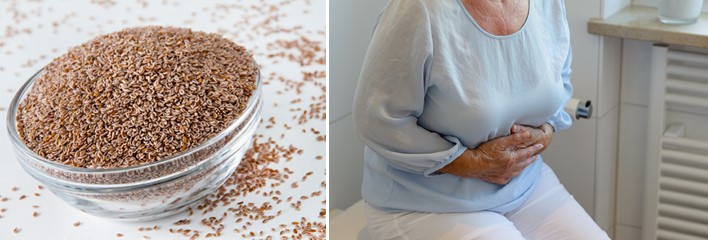

Sleep disorders
Sleep disorders include fragmented sleep at night, waking up too early and not being able to get back to sleep, nightmares, and daytime sleepiness. These may be caused by the disease itself or may be an unwanted effect of medications if the dose is too high or too low. In some cases, a concomitant condition, for example, an increased need to urinate (nocturnal urgency) may interrupt sleep during the night. Sleep disorders may also be a result of depression.
You can contribute to a more restful sleep by following some sleep rules
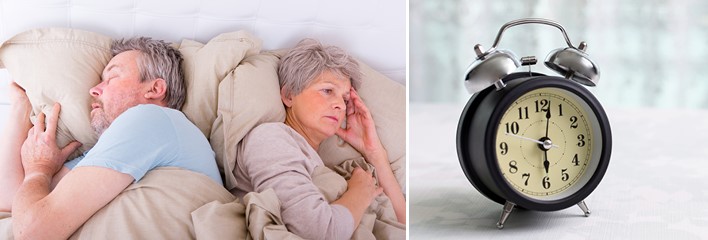

Mental health problems
Mental health problems may be disease-related or related to medication and are becoming more and more prevalent in older Parkinson's patients. The mental health problems that some patients with Parkinson’s experience include:
- depression
- dementia
- cognitive impairment (i.e., disorders of spatial perception and spatial orientation, reduced problem-solving ability)
- anxiety disorders (with panic attacks)
- psychotic episodes
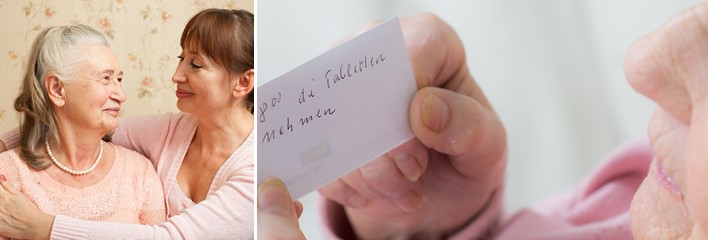

Cardiovascular
Cardiovascular or circulatory problems can mean that people living with Parkinson’s experience dizziness and drowsiness when they get out of bed in the morning. A sudden drop in blood pressure may increase the risk of falls. To minimize the risk of dizziness after laying down, try to take your time when getting up.
A lack of movement or taking dopaminergic drugs can contribute to circulatory problems, so try to include regular exercise.


Bladder problems
Bladder problems such as urinary urgency (feeling the need to go) or incontinence (loss of control over your bladder) are commonly reported. If incontinence becomes a major issue you can use specially designed disposable underwear that can help you to avoid more uncomfortable situations and prevent a loss of independence.
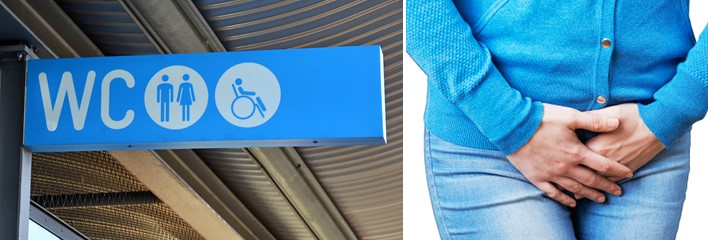

Sexuality
While male patients may experience erection problems (erectile dysfunction) and a decline in sexual interest, altered sexuality in females is less well documented. The duration of the disease is an important factor in the severity of such symptoms. Depending on the type of sexual disorder, further treatment options are available.
You should discuss changes in your sexuality openly with your doctor if they are affecting you.


Skin
Dysregulation of the sudoriparous glands (commonly known as the sweat glands) can cause excessive sweating (particularly at night), increased sweat secretion that affects, in particular, the neck and head region, or in other parts of the body, and increased sebum resulting in both oily and dry skin. Dandruff, dermatitis or even eczema can occur, affecting the sensitive scalp area.


It’s common to have experienced one or more of these symptoms before the diagnosis of Parkinson's disease is made. If this is the case, receiving a Parkinson's diagnosis can almost be a relief, because it means finally having an explanation for such symptoms.
If, at any point during the course of your disease, you’re experiencing any kind of major change in any of your symptoms, it is important to tell your doctor as it may be something that is treatable, either with new medication or by adjusting your current treatment.
Send your Feedback!
Would you recommend the UCBCares website to other visitors?
